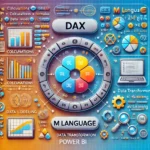Introduction:
Embracing the power of Artificial Intelligence (AI) while upholding ethics and safety standards is at the core of the European Union’s groundbreaking proposal—the Artificial Intelligence Act. This article delves into the Act’s visionary approach, examines its reception among stakeholders, and explores the thought-provoking questions raised by critics. As negotiations unfold, the future of AI governance in the European Union hangs in the balance.
Categorization and Empowering Regulations:
In an unprecedented move, the AI Act, unveiled in April 2021, classifies AI systems into four risk levels: unacceptable, high, limited, and minimal. Each tier comes with well-defined rules and obligations for developers, providers, and users, reinforcing responsible and transparent AI practices. Robust sanctions for non-compliance demonstrate the EU’s commitment to ensuring the ethical use of AI.
Entering the Arena of Negotiation:
As the AI Act moves into the negotiation phase, the European Parliament and the Council of the EU engage in a spirited exchange to refine and strengthen the proposal. This dynamic phase invites input from all sides, including industry groups, civil society organizations, and esteemed academics. The Act’s journey through this process will shape the landscape of AI regulation for years to come.
Critics’ Provocative Concerns:
Critics have voiced compelling concerns, igniting passionate debates on the Act’s scope and impact. One primary contention revolves around the Act’s comprehensive definition of AI, with some expressing fears of unintended legal consequences and stifled innovation. Others argue that the risk-based approach should be more adaptable, accounting for nuanced contexts and purposes to avoid potential overregulation or underregulation. The absolute ban on certain AI applications, without room for exceptions or safeguards, has also raised eyebrows. Additionally, smaller enterprises have voiced concerns about the compliance burden, citing potential cost implications. Furthermore, critics emphasize the importance of robust enforcement mechanisms to ensure consistent oversight and meaningful sanctions.
https://synapsefabric.com/2023/09/11/bing-vs-google-a-comparative-analysis/
Champions of the Ethical AI Movement:
Enthusiasts hail the AI Act as a groundbreaking initiative that positions the EU at the forefront of ethical AI governance worldwide. They applaud the Act’s balance, striking a chord between fundamental rights, innovation, and global competitiveness. Recognizing the rapid evolution of AI technologies, supporters praise the Act’s adaptability and foresee its ability to grow alongside technological advancements and evolving societal needs. Complementary measures such as increased investment in AI research and education, promotion of data sharing and interoperability, and strengthened international collaboration are suggested to enhance the Act’s impact and effectiveness.
Navigating the Path Ahead:
By 2023, the AI Act is expected to reach its final form, followed by a two-year implementation phase. This transformative legislation, however, will continue to evolve and adapt as challenges arise during negotiations, implementation, and evaluation. Striking the delicate balance between ethics, regulation, and technological advancement remains a key objective.
Conclusion:
The European Union’s Artificial Intelligence Act emerges as a beacon of transformative change, propelling ethical AI to center stage. As the Act enters the negotiation phase, stakeholders’ perspectives, concerns, and recommendations will shape its ultimate form. The finalized Act will be the EU’s resolute step toward an AI landscape that fosters innovation while safeguarding fundamental rights and values. It is a defining moment that propels Europe to the forefront of the global AI revolution.







